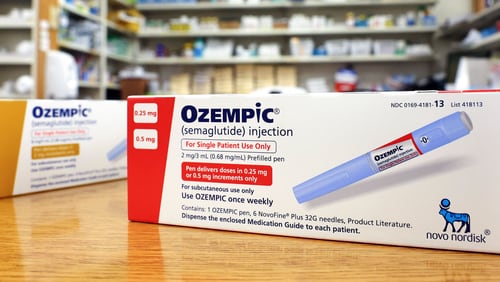You might remember Stewart Parnell. He’s the plead-the-fifth, yet-to-apologize, “Just ship it. I can’t afford to (lose) another customer” owner and president of the now defunct Peanut Corporation of America.
He put toxins in the belly of America, via the most Georgian of foods.
Now, we are about to see just how serious of a crime a federal judge in south Georgia thinks that is. Prison time — perhaps enough to amount to a life sentence — seems a certainty. And a rarity.
People who poison us while trying to make a buck haven’t usually gotten hammered, food safety experts say. And, at least until recently, neither did many white collar criminals in general. I’m referring to bad guys who rob, loot and maim not with a sawed-off shot gun but with clean coat-and-tie efficiency.
At a hearing that starts Monday, Parnell will be sentenced for intentionally sending out salmonella-tainted food that, when eventually uncovered by health officials in 2009, led us to toss every hint of peanut products from our homes. It clobbered the peanut industry.
More important, nine people died and more than 700 were sickened after eating products trucked from his southwest Georgia plant in Blakely.
A jury found Parnell guilty on dozens of counts. Fraud, obstruction of justice, conspiracy, introducing adulterated food into interstate commerce with intent to defraud or mislead.
His ingredients were used by other food manufacturers who then spread it to stores and unsuspecting customers nationwide.
Parnell has stayed pretty mum, hidden behind his lawyers.
So I spoke the other day with one of them, Ken Hodges, a former prosecutor who now has offices in Atlanta and Albany.
Hodges told me Parnell built his peanut business from nothing to an operation worth millions, and that he hoped eventually to sell it or give it to his kids.
“That shows you he had no incentive to do something that was so destructive” as to intentionally sell tainted food, Hodges said.
‘Just ship it’
At various times, Parnell’s operation made food that tested positive for salmonella. So Parnell would have the batch tested more. When later tests would come back negative, according to his attorney, he’d conclude that the first test must have been wrong rather than consider another option: that some parts were tainted and some were not. He’d ship the whole load.
Prosecutors highlighted Parnell’s emailed response when told a shipment would be delayed awaiting lab results: “Just ship it. I can’t afford to (lose) another customer.”
Hodges told me Parnell ate his own peanut products and fed them to his kids and grandkids.
Did they eat from the batches that had tested positive for salmonella? Hodges told me he didn’t know.
Parnell has not apologized – at least his attorney can’t remember him doing so. He invoked his Fifth Amendment rights to avoid answering questions before a congressional subcommittee. His attorneys tried to prevent victim statements at the sentencing hearing.
Will Parnell be sentenced to prison and, if so, for how long? Hodges thinks prison is likely but argues there’s no need to send a broader message to industry executives by ladling on lots of time.
“He’s a 61-year-old grandfather. He’s not in a position to hurt anyone. He’s bankrupt. He’s out of business. He can’t do any harm to society.”
There should be a maxim for business leaders: Don’t kill your customers.
And if you do kill your customers or knowingly send out tainted food or – hello, General Motors – hide faulty ignition switches that then lead to deaths, the penalty should be something more than a trashed corporate reputation, lost pay, unpleasant legal hassles and angry insurance companies and stockholders stuck covering your financial mess.
The penalty should be real prison time. But white collar crime hasn’t always worked that way.
In Georgia (and the nation) the chances of going to prison are significantly less for people charged with federal fraud than for those popped for drug trafficking, immigration violations, firearms counts or robbery, according to data from the U.S. Sentencing Commission.
Sentences rising
To be fair, the median prison sentence dished out for federal fraud charges has doubled in the last decade in Georgia, though it remains well below the average for plenty of other crimes.
In the 1980s and ’90s, lots of white collar crime folks got off with lenient sentences, said Lucian Dervan, an associate professor of law at Southern Illinois University.
But in the 2000s, sentencing got far tougher in some high-profile cases, he said. Bernie Madoff, for example, got punched with 150 years. Dervan, though, sees inconsistencies: some get hit hard, some don’t.
After the nation’s recent financial devastation, several companies paid out massive settlements. But high-ranking executives generally didn’t end up in prison.
The Department of Justice recently called for prosecutors to hold more individuals accountable. Then the GM settlement was announced: $900 million (enough to crimp profits, for part of a year) and not one executive facing a real perp walk.
Michael Doyle, who directs the University of Georgia’s Center for Food Safety and often works with companies, told me the Parnell case is unusually egregious as food cases go.
He contends the industry needs to get a stark message from the outcome.
While “most reputable companies don’t do this sort of thing,” Doyle said, others “are more interested in the bottom line than food safety.”
The message is a little late for the Ivester family in Elberton, Ga.
During the salmonella outbreak, Claude Ivester, then in his 70s, was hospitalized for 12 days after eating crackers stuffed with Parnell’s ingredients. During the worst of it, he couldn’t recognize his wife and five daughters, Barbara Ivester recalled.
For a year after returning home he refused to eat many pre-packaged foods. Ivester died just a few days ago from lung cancer, not food poisoning. But he never rid himself of that earlier near-death experience.
What Parnell did “was just as bad as murder,” Barbara Ivester told me. “The only thing about it he didn’t know was who he was killing.”
“I hope they throw the book at him.”
That would be more humane than serving him his own food.
About the Author






